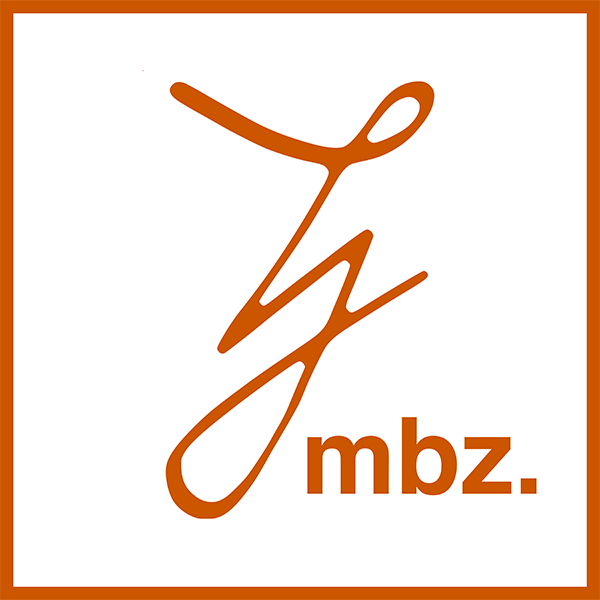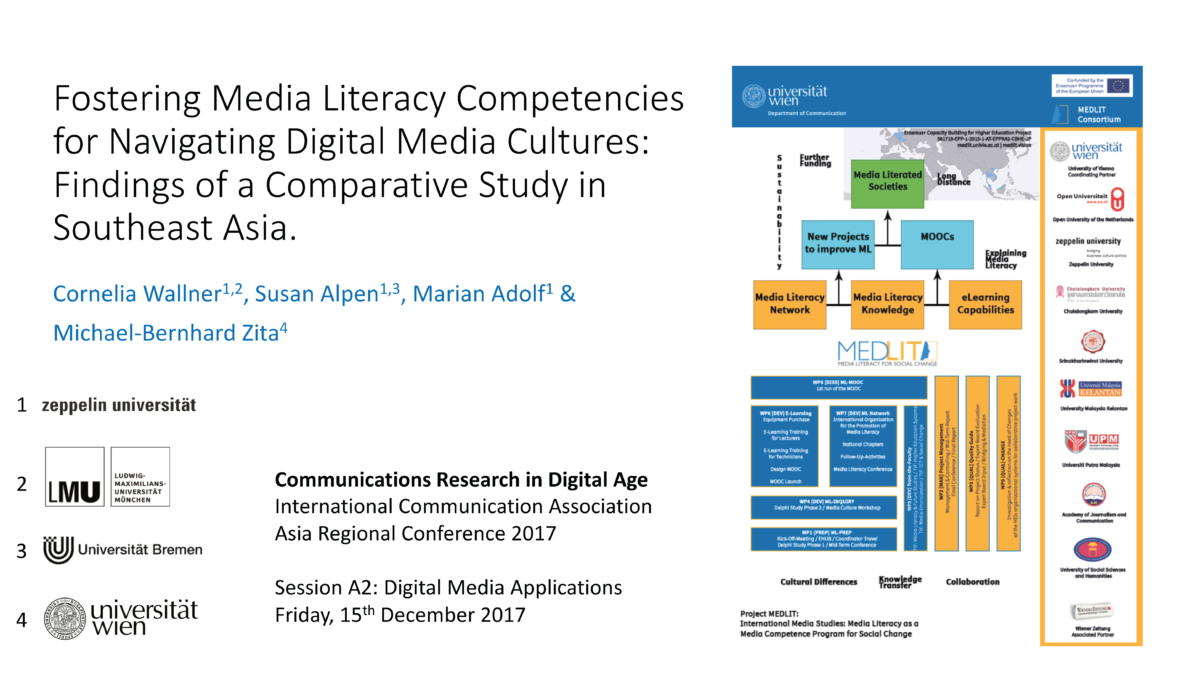Paper Presentation (December 15th, 2017) @ SNDT Women’s University (Mumbai, India) within International Communication Association Asia Regional Conference Communications Research in Digital Age (Conference Website) (ICA ARC 2017)
Abstract: Media literacy has become a crucial competency in the digital age. Following the idea that media literacy goes beyond technical skills, our research interest is to identify core competencies to enhance the proficiency of rational-critical media use, with the goal to strengthen people’s participation in social and cultural change. In this collaborative effort of researchers from Asia and Europe (2015-2018, funded by the EU), we applied a comparative Delphi study in Malaysia, Thailand and Vietnam to reveal similarities and differences concerning their respective media systems and media cultures as preconditions for media literacy enhancement, and stocks of knowledge to enhance media literacy. We will present and discuss selected results (1) about highlighted stocks of media knowledge and literacy competencies, and (2) about similarities and differences of media systemic and media cultural aspects in the three countries.
As a theoretical framework for media literacy competencies we applied Livingstone’s dimensions (2004): to access, evaluate, analyze, and create. For selecting items of media systems, we used the structure-conduct-performance scheme (van Summeren & d’Haenens 2004). Furthermore, we employed our own three-level model approaching media culture on a phenomenological, epistemic, and normative level. Based on this theoretical framework, each Asian research team generated a specific empirical design in line with our culture-sensitive approach. We may thus account for country-specific media perceptions and identify the differential requirements for media literacy enhancement and empowerment in these societies. We applied a facet-and-dimension approach (e.g. Guttman & Greenbaum 1998) to ensure comparability of country results for similar dimensions.
In our empirical design, we applied a two-wave Delphi study, prepended by qualitative expert interviews. The 1st wave’s questionnaire consisted of open-ended and closed questions (rating scale 1-6), the 2nd wave aimed to confirm, rank and elaborate the findings of the 1st wave. Interviewees of both waves were professionals from several stakeholder categories: Media educators and scholars, media practitioners, professional associations, politicians, regulatory bodies, NGOs, civil society organizations, and activists (up to 140 respondents per country). (Field work: May 2016 to February 2017.)
Stakeholders in all three countries emphasize the importance of knowledge about laws and regulations, media reality, media ethics, responsible media use, and the role of media in digital societies. Highlighted issues for single countries are as follows: in Malaysia, ethical and moral aspects of media production and use; in Thailand, critical thinking, as well as technical competencies; in Vietnam, media systemic and legal knowledge.
The project’s objective is to convert the findings into a massive open online course (MOOC), and to use our results for practical societal education programs in Southeast Asia.
Slides: Fostering Media Literacy Competencies for Navigating Digital Media Cultures [Session A2: Digital Media Applications] // DOI10.13140/RG.2.2.15009.92000

